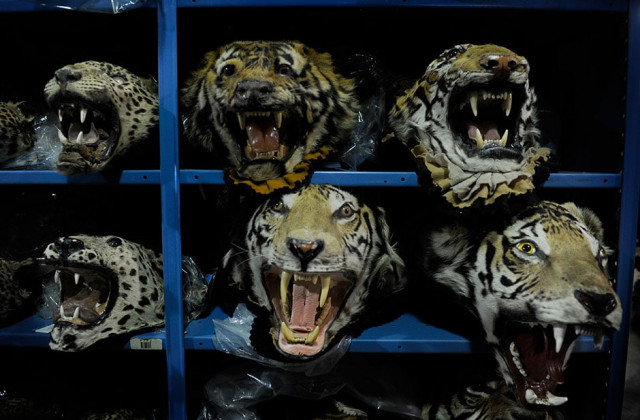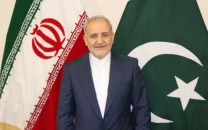WWF calls for crackdown on illegal wildlife trade in Pakistan
Illegal wildlife trade continues to rob Pakistan of its natural heritage

PHOTO: WWF
Not only does wildlife crime destabalise the ecosystem, it also poses grave consequences for endangered species. The United Nations Office on Drugs and Crime (UNODC) recognises wildlife crime as the third largest transnational crime after drugs and human trafficking.
7 magnificent pictures of endangered snow leopards in Pakistan
Although it is difficult to determine the exact value of illegal wildlife traded, studies suggest it is a major contributor to the decline of almost an entire vertebrate group across many countries of Asia, South America as well as Africa.
A recent report on the State of Global Wildlife Crimes by the United Nations reported illegal trade of about 7,000 species in more than 164,000 seizures incidents from 120 countries since 1999 (UNODC 2016); which points to the fact that trafficking is not confined to majestic species like elephants, tigers and rhinos, but also to many bird species.

 PHOTO: WWF
PHOTO: WWF PHOTO: WWF
PHOTO: WWFMuch of the wildlife crime in Pakistan goes unreported owing to the lack of effective management and poor law enforcement. Pakistan, being a strategic location has many road, air and sea transit routes which are easily accessible and not closely monitored; enabling ease of trafficking of live animal consignments, as well as their parts.
Pakistan is known to trade several species of reptiles, mammals, birds, timber as well as medicinal plants. Commercial exploitation of these fauna and flora is on the rise due to established networks of wildlife poachers and dealers.
 PHOTO: WWF
PHOTO: WWF PHOTO: WWF
PHOTO: WWFIn efforts to tackle the growing crime, WWF-Pakistan is developing a national action plan to address these issues and challenges, in the form of capacity building of law enforcement agencies, awareness campaigns and research to develop new practical strategies.
A number of consultative and capacity building workshops have been conducted in collaboration with concerned agencies including provincial wildlife departments, Pakistan Customs and relevant NGOs with the objective of adopting a holistic approach and develop a national level strategy to eliminate illegal wildlife trade.
 PHOTO: WWF
PHOTO: WWF PHOTO: WWF
PHOTO: WWF PHOTO: WWF
PHOTO: WWFThe campaign, ‘Save Our Species’ is in place to help WWF-Pakistan spread awareness and enables public to report illegal wildlife trade through social media.
Get in touch with the concerned provincial department here or show your support by joining Team Panda as an individual member here.



















COMMENTS
Comments are moderated and generally will be posted if they are on-topic and not abusive.
For more information, please see our Comments FAQ